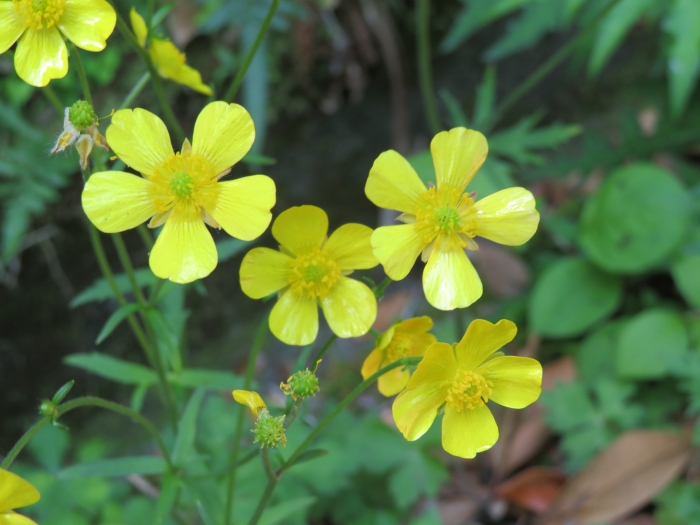Japanese Buttercup
(Ranunculus japonicus)
Japanese Buttercup (Ranunculus japonicus)
/
/

© belvedere04
CC BY 4.0
Image By:
© belvedere04
Recorded By:
Copyright:
CC BY 4.0
Copyright Notice:
Photo by: © belvedere04 | License Type: CC BY 4.0 | License URL: http://creativecommons.org/licenses/by/4.0/ | Uploader: belvedere04 | Publisher: iNaturalist |

























Estimated Native Range
Summary
Ranunculus japonicus, commonly known as Japanese buttercup, is a perennial herb native to moist meadows and grassy slopes in East Asia, particularly Japan, Korea, and parts of China. It typically grows to a height of 12-24 inches (30-60 cm) and spreads to a similar width. The plant features glossy green, palmately lobed leaves and produces bright yellow flowers in the spring and early summer. The flowers are showy and cup-shaped, attracting pollinators such as bees and butterflies.
Japanese buttercup is valued for its vibrant yellow blooms which can enliven garden borders, wildflower meadows, and waterside plantings. It thrives in moist, well-drained soils and prefers full sun to partial shade. While it can be a charming addition to the garden, it requires careful management to prevent it from becoming invasive. In some regions, it has escaped cultivation and can outcompete native plants. Gardeners should be cautious and consult local regulations before planting.CC BY-SA 4.0
Japanese buttercup is valued for its vibrant yellow blooms which can enliven garden borders, wildflower meadows, and waterside plantings. It thrives in moist, well-drained soils and prefers full sun to partial shade. While it can be a charming addition to the garden, it requires careful management to prevent it from becoming invasive. In some regions, it has escaped cultivation and can outcompete native plants. Gardeners should be cautious and consult local regulations before planting.CC BY-SA 4.0
Plant Description
- Plant Type: Herb
- Height: 1.5-2 feet
- Width: 1-1.5 feet
- Growth Rate: Moderate
- Flower Color: Yellow
- Flowering Season: Spring, Summer
- Leaf Retention: Deciduous
Growth Requirements
- Sun: Full Sun, Part Shade
- Water: Medium
- Drainage: Medium
Common Uses
Border Plant, Butterfly Garden, Low Maintenance, Water Garden
Natural Habitat
Moist meadows and grassy slopes in East Asia
Other Names
Common Names: Japanese Buttercup, Japanese Crowfoot
Scientific Names: , Ranunculus japonicus, Ranunculus acris, Ranunculus acris f. oreodoxa, Ranunculus acris f. stevenii, Ranunculus acris f. yuparensis, Ranunculus acris subsp. japonicus, Ranunculus acris subsp. novus, Ranunculus acris subsp. steveni, Ranunculus acris subsp. stevenii
GBIF Accepted Name: